Crepe Erase is the #1 Selling Anti-Aging Body Treatment System for Dry, Crepey Skin
This is a “sponsored post.” Crepe Erase® compensated FOF with an advertising sponsorship to write it. Regardless, we only recommend products or services that we believe will be helpful for our readers. All insights and expressed opinions are our own.
When I swore off short sleeves and sandals on unbearable 90 degree summer days I knew it was time to treat the dry, flaky and saggy skin on my arms and feet. Covering up my problem was just making me feel more uncomfortable. Now that another summer is upon us, I am happily whipping out cool clothes once again. My skin feels and looks softer and smoother. My legs, my arms, my hands and my neck—all sensationally smoother looking. I’ll tell you about my delightful discovery in a moment.
Dry skin is common in later life, when our glands naturally produce less oil.
Woefully, the things that give us joy in summer, from romping in the waves to picnicking in the park, can make the problem worse. Chlorine in the pool, saltwater in the ocean and air conditioning can rob our skin of natural oils, leaving it super dry. Even the sun’s UV rays can be drying!
What’s more, our skin loses its wonderful foundation of collagen and elastin, making it loose and saggy.

As editor of a trusted website, I’m often invited to try out beauty products for everything from my head to my toes. One brand–Crepe Erase®—stood out because I’ve seen the actress, Jane Seymour, talk about it on TV. Now 68, Jane has been a Crepe Erase® fan for years, and looks amazing. That’s an outstanding endorsement right there!
Crepe Erase features TruFirm Complex, an exclusive blend that includes three plant extracts to help reinforce our skin’s netting, so the skin can appear tighter and firmer, helping it look like it did when we were younger. Crepe Erase® also contains seven powerful hydrators–coconut oil, shea butter, cocoa butter, olive oil, beeswax, cassava and Vitamin E–that absorb quickly and work to visibly soothe and renew the skin.
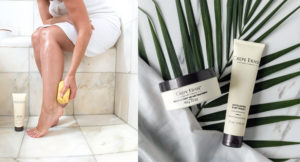
Crepe Erase® is the #1 Anti-Aging Body Treatment System for Dry, Crepey Skin*
(*Based on Crepe Erase® sales data & IRI & NPD sales data for 2017.)
The Essentials Kit includes only two simple steps:
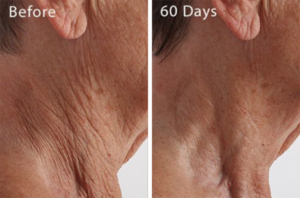 First, I grab my bottle of Exfoliating Body Polish when I shower, to lift away dead, rough surface cells and make my skin feel smoother and look more radiant. (By the way, avoid taking long, hot showers because they’ll dry your skin even more!) After the shower, I massage the Intensive Body Repair Treatment, with the TruFirm Complex, into the crepey skin on my neck, chest, arms and legs. The Body Polish has a lovely, fresh scent, and the Repair Treatment absorbs quickly and isn’t even the tiniest bit greasy.
First, I grab my bottle of Exfoliating Body Polish when I shower, to lift away dead, rough surface cells and make my skin feel smoother and look more radiant. (By the way, avoid taking long, hot showers because they’ll dry your skin even more!) After the shower, I massage the Intensive Body Repair Treatment, with the TruFirm Complex, into the crepey skin on my neck, chest, arms and legs. The Body Polish has a lovely, fresh scent, and the Repair Treatment absorbs quickly and isn’t even the tiniest bit greasy.
As I said earlier, the skin on my body hasn’t felt this smooth and hydrated in years. I’ve learned that the more consistently you use skincare products, the better the results. I’ve been treating my skin to Crepe Erase® for two years, and it’s paid off when I need it most!
Crepe Erase® isn’t a glorified body lotion. Trust me, it feels like I’ve tried them ALL. If my word isn’t enough, look at these superb results from an 8-week Crepe Erase® clinical study:

82% OF USERS REPORTED THEIR SKIN WAS SMOOTH AFTER 1 USE **
90% SHOWED IMPROVEMENT IN THE LOOK OF SKIN FIRMNESS ON THEIR ARMS AFTER 4 WEEKS †
95% OF WOMEN EXPERIENCED A LIFTED APPEARANCE OF SKIN AFTER 8 WEEKS ‡
**Based on a 50-person consumer use survey. Individual results will vary.
†Based on a 49-person evaluation by an expert clinical grader. Individual results will vary.
‡Based on the average results of a 50-person evaluation by an expert clinical grader measuring décolleté, arms and knees & legs. Individual results will vary.
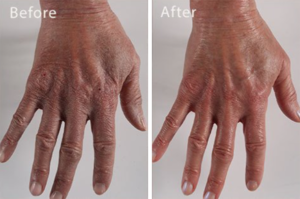 Results will vary
Results will vary
Crepe Erase® is so confident that you’ll love its products, it invites you to use them for 60 days, and, if you’re not satisfied, you can return the containers–EVEN EMPTY–for a full refund, less s&h! This offer assures me even more that these are quality beauty products. Plus, the line is incredibly reasonable in the first place!  and save on Crepe Erase + get FREE SHIPPING today!
and save on Crepe Erase + get FREE SHIPPING today!

 Then I had an aha moment: As I’ve aged my signature boundless energy had been steadily ebbing, until I began taking a daily supplement two years ago that promised to
Then I had an aha moment: As I’ve aged my signature boundless energy had been steadily ebbing, until I began taking a daily supplement two years ago that promised to  In a nutshell, Dr. Brenner uncovered the pathway between a molecule called
In a nutshell, Dr. Brenner uncovered the pathway between a molecule called 
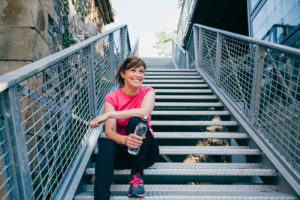
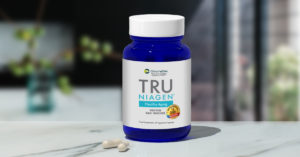 And, now I can rejuvenate my health, starting from within, with a dietary supplement called TRU NIAGEN. I have been taking
And, now I can rejuvenate my health, starting from within, with a dietary supplement called TRU NIAGEN. I have been taking 
 phenomenal, 24-hour “clocks” in every one of our cells and tissues impact the way all our organs work, from our heart to our liver, and one master clock in our brain leads the way. Although most of us happily said sayonara to science back in high school, it pays to get a basic understanding of what makes our internal clocks tick, and how to help keep them on time. Because if the clocks go haywire from the way we’re living our lives, we could be jeopardizing our well-being.
phenomenal, 24-hour “clocks” in every one of our cells and tissues impact the way all our organs work, from our heart to our liver, and one master clock in our brain leads the way. Although most of us happily said sayonara to science back in high school, it pays to get a basic understanding of what makes our internal clocks tick, and how to help keep them on time. Because if the clocks go haywire from the way we’re living our lives, we could be jeopardizing our well-being.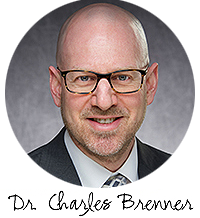 “Then, when most of us sleep, our brains clean up a bunch of toxic waste that accumulates over the course of a day, and the chemical life-maintaining processes taking place inside our bodies slow down,” Dr. Brenner added. We continue to burn fuel when we’re asleep, but since we’re not eating all night, our body converts glycogen stored in our liver and muscles into blood sugar for energy during the overnight period.
“Then, when most of us sleep, our brains clean up a bunch of toxic waste that accumulates over the course of a day, and the chemical life-maintaining processes taking place inside our bodies slow down,” Dr. Brenner added. We continue to burn fuel when we’re asleep, but since we’re not eating all night, our body converts glycogen stored in our liver and muscles into blood sugar for energy during the overnight period.  When we don’t get enough sleep, our level of ghrelin goes up and our level of leptin goes down, making us feel hungrier than when we’re well-rested.
When we don’t get enough sleep, our level of ghrelin goes up and our level of leptin goes down, making us feel hungrier than when we’re well-rested. the alcohol wears off around 3 a.m., we’re wide awake.
the alcohol wears off around 3 a.m., we’re wide awake. 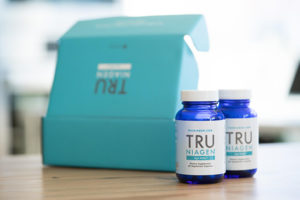
 If you’d first met Leo shortly before he died, you’d never guess he was 102. He still walked with a spring in his step, carried heavy bags of groceries, and was constantly on the move. What’s more, Leo never ever napped during the day. And, his cheeks were as pinchably round and rosy as ever!
If you’d first met Leo shortly before he died, you’d never guess he was 102. He still walked with a spring in his step, carried heavy bags of groceries, and was constantly on the move. What’s more, Leo never ever napped during the day. And, his cheeks were as pinchably round and rosy as ever!  Dr. Linda Fried, an internist, first defined frailty syndrome in 2001 and warned that it puts us at risk of “very bad outcomes.” But what makes some of us frail when we’re only in our 50s, while others never become frail, like Leo? Our genetics and environment certainly play important roles, and even if we don’t have control over either, we
Dr. Linda Fried, an internist, first defined frailty syndrome in 2001 and warned that it puts us at risk of “very bad outcomes.” But what makes some of us frail when we’re only in our 50s, while others never become frail, like Leo? Our genetics and environment certainly play important roles, and even if we don’t have control over either, we Although we lose mitochondria as we age, researchers have discovered that when older adults (their average age was 67 in one study) regularly exercise, the amount of their mitochondria increases significantly. This, in turn, increases energy and endurance!
Although we lose mitochondria as we age, researchers have discovered that when older adults (their average age was 67 in one study) regularly exercise, the amount of their mitochondria increases significantly. This, in turn, increases energy and endurance! 
 No matter where I might be during the day—supermarket to nail salon—I see “older” people who dishearten me. Many of them are 70 years old max. But, these people actually
No matter where I might be during the day—supermarket to nail salon—I see “older” people who dishearten me. Many of them are 70 years old max. But, these people actually  “I couldn’t fake it anymore. It was getting harder and harder to follow my friend’s conversations in noisy restaurants, and I’d constantly ask my husband to repeat dialogue when we watched our favorite shows,” Sharon said.
“I couldn’t fake it anymore. It was getting harder and harder to follow my friend’s conversations in noisy restaurants, and I’d constantly ask my husband to repeat dialogue when we watched our favorite shows,” Sharon said.